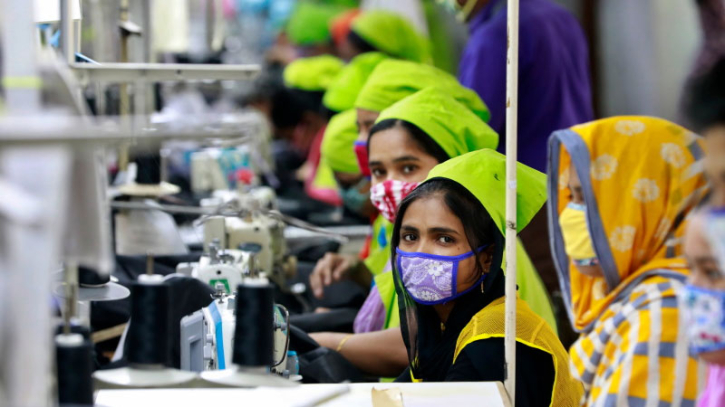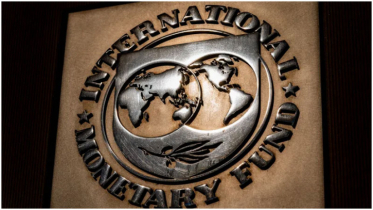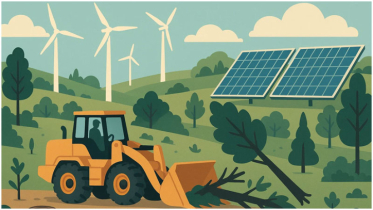Unravelling the Paradox: Bangladesh's Labour Rights vs. US Scrutiny

Within the complicated fabric of international relations, the interplay between states frequently conceals intricacies that challenge superficial interpretations. The relationship between the United States and Bangladesh is characterised by both cooperation and disagreement.
Although Bangladesh has made remarkable progress in safeguarding labour rights, it continues to be subject to monitoring by the United States. To understand this paradox, it is necessary to go beyond oversimplified explanations and examine the complex aspects of this connection.
Central to this discussion is Bangladesh's impressive achievement in protecting workers' rights in the last ten years. The government has adopted substantial changes throughout the years to enhance working conditions, provide equitable salaries, and improve workers' safety.
The catastrophic Rana Plaza collapse in 2013, resulting in the deaths of more than 1,134 garment workers, acted as a poignant reminder for Bangladesh and the international world. The government, in conjunction with international organisations and stakeholders, implemented comprehensive changes to enhance workplace safety standards and safeguard workers' rights.
Moreover, Bangladesh has made significant progress in implementing laws to address child labour and advance gender equality in the labour force. The National Child Labour Elimination Policy, 2010 and the National Plan of Action to Eliminate Child Labour (2021-2025) serve as guidelines for eliminating child labour and guaranteeing universal access to education for children.
Bangladesh's dedication to gender equality and women's rights is seen in its initiatives to empower women in the workforce, including the introduction of quotas for female participation in local government organisations.
Considering these progressions, it is reasonable to anticipate that Bangladesh would be recognised as an exemplary advocate for labour rights on an international level. Nevertheless, the actual situation is far more intricate, since Bangladesh remains under close examination and influence from the United States and other Western countries. This raises the question: Why is Bangladesh still being targeted despite its attempts to safeguard workers' rights?
A significant reason is the enduring obstacles that Bangladesh encounters in effectively adopting and enforcing labour legislation. Despite making significant progress by the present government, the effectiveness of labour laws in Bangladesh requires strong institutional capacity, reducing corruption, and ensuring the adequacy of resources.
In some cases, due to a lack of proper monitoring and enforcement mechanisms incidents of labour rights violations take place, which negatively affects Bangladesh's reputation despite its good intentions. Though these incidents are quite evident, still international actors remain very vocal on the further improvement of the enforcement of legal provisions.
Furthermore, the worldwide garment industry, in which Bangladesh plays a significant role, functions within an intricate network of supply chains that frequently emphasise economic effectiveness over the well-being of workers.
The demand to fulfil production deadlines and cost minimisation can result in violations of labour rights, such as hazardous working conditions, inadequate wages, and exploitation. Although Bangladesh has made efforts to tackle these problems, the complex obstacles within the worldwide supply chain require a collaborative approach that involves all parties, especially multinational firms and consuming nations such as the United States.
Moreover, geopolitical factors exert a substantial influence on the dynamics of the Bangladesh-United States relationship. Bangladesh's advantageous geographical position in South Asia, with India and Myanmar as its neighbouring countries, establishes it as a pivotal participant in regional politics and security dynamics.
Moreover, Bangladesh maintains a very congenial relationship with China. Therefore, the United States has a significant interest in developing relationships with Bangladesh in order to further its larger geopolitical goals in the area.
Nevertheless, this strategic analysis is not without its complexities. The deepening relationship between Bangladesh and China, through infrastructural initiatives, has sparked apprehension in Washington over Beijing's increasing sway in the area. The United States considers Bangladesh to be an essential partner in its endeavours to counteract China's influence and preserve its strategic position in South Asia.
In addition, Bangladesh and the United States have disagreements about human rights violations, and democratic governance. Although Bangladesh has achieved advancements in several domains, the US has been expressing its concerns over electoral democracy. These concerns, together with geopolitical rivalry and strategic objectives, contribute to the intricate dynamics that characterise the relationship between the two states.
Both Bangladesh and the United States must engage in constructive conversation and collaboration, rooted in mutual respect and understanding, to navigate this complex environment effectively.
Instead of just focusing on labour rights, the United States should acknowledge the wider socio-economic and geopolitical circumstances in which Bangladesh functions. This involves assisting Bangladesh to bolster its institutions, improve regulatory frameworks, and advance sustainable development.
Likewise, Bangladesh must firmly maintain its dedication to preserving worker rights, combatting corruption, and supporting good governance. By directly confronting these difficulties, Bangladesh may enhance its reputation as a conscientious participant in the international community and establish more robust alliances with countries such as the United States.
Ultimately, the connection between Bangladesh and the United States is an intricate fabric formed by several elements, such as workers' rights, geopolitical considerations, and economic motivations.
Although Bangladesh has made significant progress in safeguarding worker rights, there are still ongoing issues and widespread misconceptions. Through the promotion of communication, collaboration, and reciprocal regard, both nations may navigate a course towards a more affluent and fair future for all.
Source: Daily Sun.
.png)




